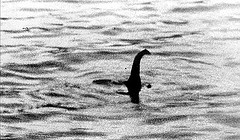1. Sonia's interest in mythology
Have a look at the following phrases and guess what they have in common.
|
So, as a general rule, whenever the possessor is a living thing and we express ownership, the relationship is expressed by
| Possessor | + | 's | + | Thing possessed |
| Paco | + | 's | + | tennis racket |
Do you remember how you must add 's to nouns to form Saxon Genitives? If you don't, click here. It's really easy!
- By clicking here not only will you check the rules to add 's to nouns to form the Saxon Genitive, but you will also practice them.
- And if you click here you will improve your knowledge on the Genitive Case in English by doing an easy exercise.
- In order to know and learn irregular plurals, click here.
Paco is having problems with the use of the apostrophe ('). Sonia explains to him that the apostrophe is used in English to replace "missing" letters, as it happens in short forms (isn't, don't, can't) or even in colloquial English ('cause for because, or 'tis for it is). Watch the video and notice how you must learn how to use the apostrophe correctly to avoid making mistakes.
Fill in the gaps with the possessive case of nouns.
Sonia has a book on mythology → This is on mythology.
Our classmates live in this house → This is our .
His parents have bought several rods → There you can find his .
The policemen drive a blue car → This is the .
Andrés has a sister → Peter, let me introduce you to or .
Paco is beginning to understand the use of the Genitive Case in English. However, his sister's mythological book has called his attention and he is having a glance at it. After several minutes, he finds out that there are legends about some of the places he is going to travel to soon, the British Isles. So, he had heard of the Loch Ness Monster, but he didn't know this:

|
| By Peter Mulligan. C. Commons |
The Loch Ness Monster is a creature believed to live in Loch Ness in the Scottish Highlands. It is similar to other supposed lake monsters in Scotland and elsewhere, though its description varies from one account to the next.
Popular interest and belief in the animal has fluctuated since it was brought to the world's attention in 1933. Evidence of its existence is largely anecdotal, with minimal and much disputed photographic material.
The scientific community regards the Loch Ness Monster as a modern-day myth, and explains its sightings as a mix of jokes and wishful thinking. Despite this, it remains one of the most famous examples of cryptozoology. The legendary monster has been affectionately referred to by the diminutive Nessie (Scottish Gaelic: Niseag) since the 1950s. Whether it is true or not, the suggestion of Nessie's existence makes Loch Ness one of Scotland's top tourist attractions.
After reading this, Paco decides to visit Loch Ness in Scotland when he travels to the British Isles.

By José Lopetegui. C. Commons